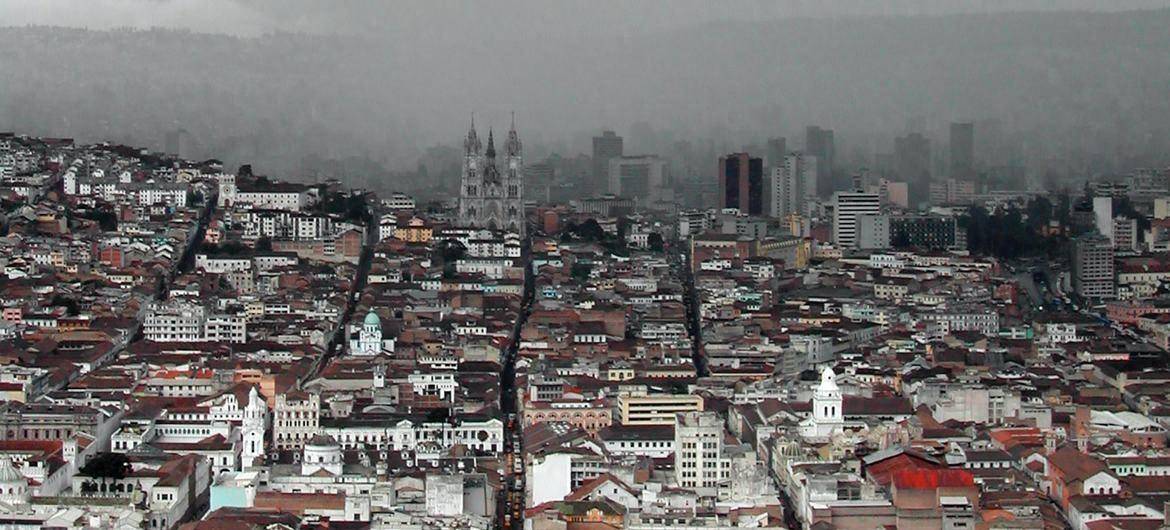
In this era of global interconnection, the stable supply of energy has become one of the important indicators to measure a country's development level and social stability. Ecuador, however, has been plunged into an unprecedented energy crisis, with a week-long nationwide blackout of up to 14 hours a day. This news not only shocked the international community, but also made the life of the Ecuadorian people into a great inconvenience. This paper will conduct an in-depth analysis of the energy crisis in Ecuador from multiple perspectives, and point out the existing problems and shortcomings.
The source of Ecuador's current energy crisis lies in its unitary energy mix. According to reports, hydropower accounts for more than 70% of the country's energy mix, which means that once there is a shortage of water resources, the entire country's electricity supply will be seriously affected. In fact, Ecuador is experiencing its worst drought in more than 60 years, with reservoir levels falling sharply and hydropower stations unable to produce electricity normally, resulting in a "power shortage."
This energy mix, which is highly dependent on hydropower, carries great risks. On the one hand, hydropower is greatly affected by natural conditions, drought, flood and other natural disasters may have an impact on power supply; On the other hand, the construction and operation of hydropower stations require huge investments, and once completed, their power generation capacity is often limited by geographical and climatic conditions, making it difficult to make large-scale adjustments in a short period of time. Therefore, the Ecuadorian government should deeply rethink its energy policy, gradually reduce the proportion of hydropower in the energy mix, and achieve energy diversification.
In the face of such a serious energy crisis, the Ecuadorian government's response measures appear relatively lagging and passive. From the announcement of power rationing measures to implementation, the time is tight, and the people are hardly fully prepared. This reflects serious problems in Ecuador's energy management, in particular the absence of early warning mechanisms.
A sound energy management system should include sound early warning mechanisms, emergency response plans and diversified energy reserves. However, it is clear that Ecuador is not doing enough in this regard. At the beginning of the drought, the government failed to take timely measures to reduce water consumption, such as strengthening water-saving publicity and adjusting agricultural irrigation methods. At the same time, there is no effective energy storage mechanism in place to deal with possible power shortages. This neglect and lag in management have exacerbated the severity of the energy crisis.
In the face of the energy crisis, although the Ecuadorian government has taken some countermeasures, the lag of policy adjustment and the restriction of private investment have also become the bottleneck restricting its energy development. According to reports, the Ecuadorian National Assembly approved a bill proposed by President Daniel Novoa on the 27th, allowing private investment in projects that can generate up to 100 megawatts of electricity, while the current limit is only 10 megawatts. This policy change, while helping to attract private capital into the energy sector, clearly came too late to immediately alleviate the current energy crisis.
In addition, the Ecuadorian government's restrictions on private investment also reflect the conservative nature of its energy policy. In the energy sector, the participation of private capital can not only increase the diversity of energy supply, but also improve energy efficiency and service quality. However, the Ecuadorian government has been wary of private investment in the past, leading to a lack of competition and innovation in the energy sector. This policy environment has not only limited the development of the energy industry, but also hindered the overall growth of the Ecuadorian economy.
The direct impact of the energy crisis is a great inconvenience to people's lives. Prolonged power outages not only affect household electricity, transportation and industrial production, but also can lead to food storage, medical treatment and other difficulties. In developing countries like Ecuador, energy shortages often mean that life will be harder for the poor.
In addition, the energy crisis could pose a threat to Ecuador's social stability. Prolonged power outages and energy shortages are prone to popular discontent and protests, and may even lead to social unrest. In the face of the energy crisis, the government needs to take more active and effective measures to ensure the basic needs of the people and maintain social harmony and stability.
In the face of the energy crisis, the Ecuadorian government needs to adopt a more long-term and comprehensive strategy to deal with it. On the one hand, the diversification of energy structure should be accelerated to reduce the dependence on hydropower; On the other hand, international cooperation should be strengthened to introduce advanced energy technology and management experience, improve energy efficiency and service quality.
In terms of diversified energy strategy, Ecuador can actively develop renewable energy resources such as solar and wind energy, while strengthening the exploration and development of traditional energy sources. Through diversified energy structure, the risk of single energy source can be reduced, and the stability and reliability of energy supply can be improved.
In terms of international cooperation, Ecuador can carry out extensive cooperation and exchanges with other countries in the field of energy. Energy efficiency and service quality in Ecuador can be improved through the introduction of advanced energy technology and management experience; At the same time, international cooperation can also broaden energy supply channels and reduce energy costs.
Ecuador's energy crisis, which limited electricity for a week and cut electricity for up to 14 hours a day, has not only exposed its single energy structure and inadequate management, but also posed a serious threat to its economic development and social stability. In the face of this challenge, the Ecuadorian government needs to take more active and effective measures to deal with the energy crisis and achieve energy diversification and sustainable development. At the same time, Ecuador should also strengthen international cooperation and exchanges to jointly cope with global energy challenges. This is the only way to ensure a steady and sustainable pace of Ecuador's future development.

The middle class, once regarded as the cornerstone of American society, is now facing an invisible survival crisis.
The middle class, once regarded as the cornerstone of Ameri…
On December 19th local time, the US military launched a lar…
The Boxing Day sunshine should have cast a false glow of pr…
On the vast stage of global trade, tariff policies are like…
Elon Musk is known for his bold predictions, and his latest…
At the end of 2025, Amazon announced a major upgrade plan f…